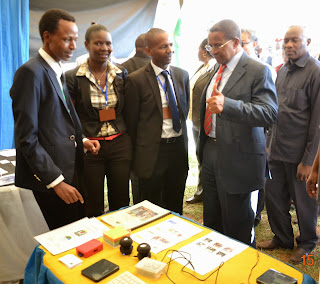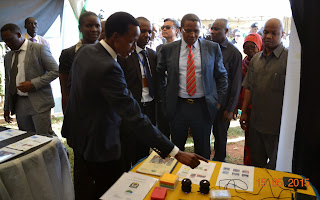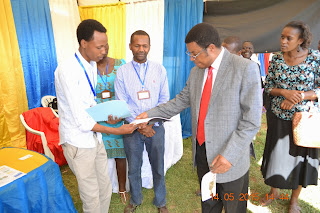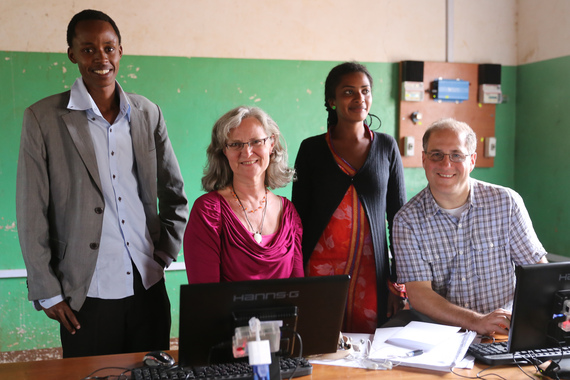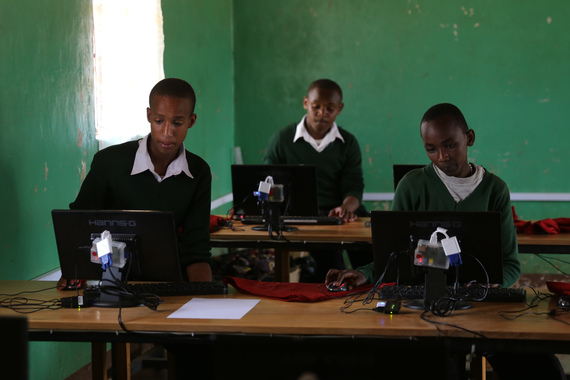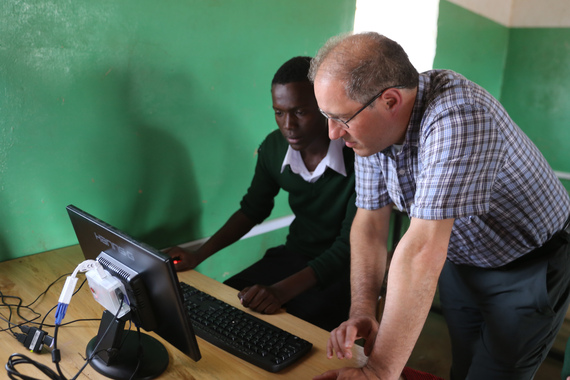This week, we want to introduce you to Powering Potential’s Country Director, Eng. Albin Mathias, in his own words.
Background and Introduction to Powering Potential
 |
| Albin briefing His Excellency Dr. Jakaya Kikwete, President of the United Republic of Tanzania |
I was born and grew up in Arusha in the north of Tanzania. I went to Tanga Technical Secondary School in 2002 and then to Old Moshi High School in 2006. After graduation, I worked as a physics and chemistry teacher at Banjika Secondary School. While teaching in Banjika, I spent my free time in the computer lab working on two laptops donated by Janice Lathen [Founding Director and President]. After a few months of practice by myself, I couldn’t believe the experience I was having and how useful the resources had become to my fellow teachers and students.
On her next trip to Tanzania, Janice met with me in the computer lab. Janice and I worked with the technology with Banjika students, and then I conducted a training at the Noonkodin and Oltoroto schools, introducing the computers to middle and high school students and their teachers.
 |
| Albin with Ross Wehner, World Action Team |
I graduated from St. Joseph University in Tanzania with a Bachelor of Engineering degree in Information Systems and Network Engineering, and became Powering Potential’s Country Director in 2011.
Experience with Powering Potential
It has been a great honor to be part of the Powering Potential team. As part of this team, I feel proud and energized. It’s been an honor to meet and discuss our programs with High Government officials, especially to exhibit the programs to the President, Prime Minister, and other Ministers and Permanent Secretaries.
 |
| Albin with Zuberi Samataba, Deputy Permanent Secretary (Education) PMO-RALG, and Walter Minja |
I also very much appreciate collaborating with District Executive Directors (DED), District Education Officers (DEO), the heads of schools, teachers, and students. Besides the challenges of limited budgets, most schools have been very cooperative with Powering Potential in bringing the world of technology to their community.
Honestly, I enjoy working with different people, meeting different cultures, and travelling across the country. It has been a great experience for me. Powering Potential is very important to me: in addition to being an employment opportunity, it has really powered my own potential. Powering Potential is where I recognized my own potential.
